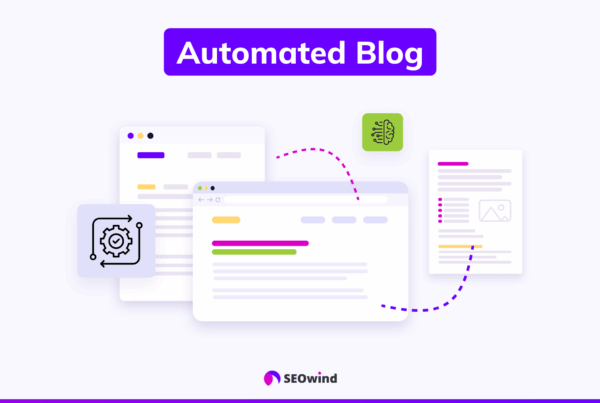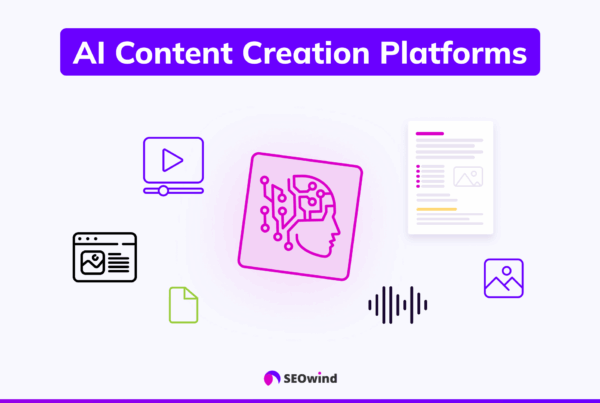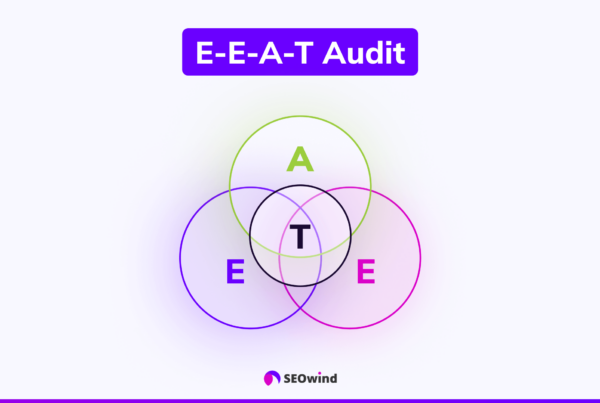Artificial Intelligence (AI) has clearly spread into many areas, including Search Engine Optimization (SEO). A recent Influencer Marketing Hub Report reveals that 49.2% of businesses using AI tools reported enhanced SEO rankings, particularly after Google algorithm updates. Yet questions persist: Is AI-generated content detrimental to SEO, or does it herald a new era of exciting possibilities?
The answer isn’t black and white. Google does not penalize AI content itself, but relatively low-quality or spammy content, regardless of whether it was created by a human or AI. Google’s goal is to deliver the best possible value and content to users. The key difference lies in how AI content is created and implemented.
The Current State of AI Content in SEO
As of June 2025, AI-generated content makes up approximately 16.5% of Google Search Results, according to a continuous study by Originality.ai. This figure is slightly down from its peak of 19.1% in January 2025 but remains significantly higher than in previous years. It demonstrates the growing acceptance and effectiveness of AI content when done correctly. According to SurveyMonkey’s 2024 surveys, 51% of marketers now use AI to optimize content for SEO. Meanwhile, 52% of SEO professionals reported performance improvements from using AI for on-page SEO tasks, such as keyword integration and content optimization (Statista).
However, the effectiveness of AI content varies dramatically depending on the content type and implementation approach. Educational and informational content performs exceptionally well with the aid of AI. In contrast, personal stories and reviews struggle to achieve the same level of success.
Educational Content – Among all AI Overviews, educational content is increasingly common. Although overall, AI Overviews appeared in 13.14% of all queries by March 2025, up from 6.49% in January (Semrush, 2025). This content type benefits from AI’s ability to process and synthesize factual information efficiently while maintaining accuracy and relevance.
Review Content presents challenges for AI implementation. Authenticity remains a critical ranking and trust factor for review content, as Google’s algorithms increasingly favor content that demonstrates real user experience. AI-generated reviews typically underperform because they lack the genuine, firsthand perspectives that users and search engines value.
Personal Stories represent the most challenging content type for AI generation. Search engines prioritize authentic, firsthand perspectives that AI cannot convincingly replicate. The E-E-A-T framework, in particular, emphasizes experience, which AI inherently lacks.
Recent Success Stories: AI Content Driving Real Results
Several companies have achieved remarkable SEO success using strategic AI content approaches.
Flyhomes

Flyhomes generated over 1.1 million monthly visits and 10,737% traffic growth in just three months by leveraging AI to create over 415,000 new pages focused on cost of living guides. Their AI-generated content accounted for 55.5% of total website traffic, demonstrating how targeted, large-scale AI content can drive explosive organic growth (AIOSEO).
An industrial manufacturer working with The Search Initiative saw their AI referral traffic increase by 2,300% by optimizing content specifically for AI Overviews across Google and Bing. The company went from ranking for zero keywords in AI Overviews to ranking for 90 keywords, showcasing the potential of AI-optimized content strategies (Diggity Marketing).
Benefits of AI Content for SEO
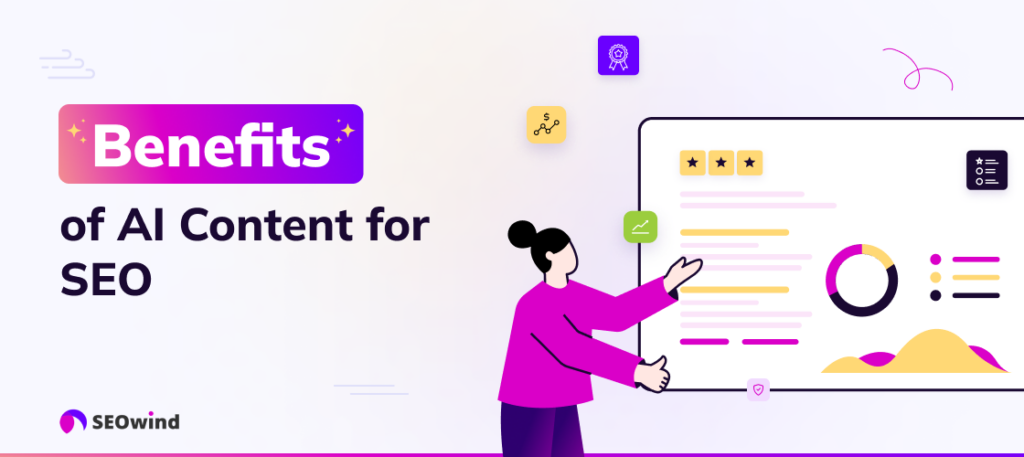
When implemented strategically, AI content offers substantial advantages for SEO efforts. The key lies in understanding how to leverage AI’s strengths while maintaining quality and authenticity.
Enhanced Scalability and Efficiency
AI’s most significant advantage lies in its ability to scale content production without sacrificing quality when properly managed. Companies utilizing AI for content creation reports increased business productivity by 66%, as these tools automate mundane and repetitive tasks, freeing employees to focus on higher-value activities (nngroup).
The scalability extends beyond mere volume. AI can analyze terabytes of data in minutes, enabling the tailoring of marketing efforts based on real-time market trends and consumer behaviors. This capability enables businesses to quickly adapt content strategies and create targeted recommendations based on individual user preferences.
Advanced Data Analysis and Personalization
AI excels at studying consumer behavior through data analytics, forming the foundation for crafting personalized online experiences. This enables businesses to anticipate user needs based on search history and behavioral patterns, creating content that resonates more effectively with target audiences.
The technology also refines geotargeting capabilities, conducts hyper-local keyword research, and helps translate and optimize content for international audiences, significantly expanding the potential global reach.
The Risks: What Industry Leaders Say

The transformation of the search presents both opportunities and challenges that require careful navigation.
“AI-generated summaries, like Google’s AI Overviews, are leading to significant traffic erosion and lower click-through rates. The focus for businesses should shift to creating content that stands out – content that AI can’t easily summarize or replicate, while prioritizing conversion quality over traditional traffic metrics.” Tom Winter, SEOwind
“AI Overviews will ‘swallow up most top-of-the-funnel queries like ‘what is,’ ‘how to,’ and ‘why.’ Instead of panicking, you should start thinking about how you’ll adapt your content strategy to appear for AI Overview because this new SERP only rewards the winner at the top while everyone else is fighting for scraps.” – Chima Mmeje, SEO Expert
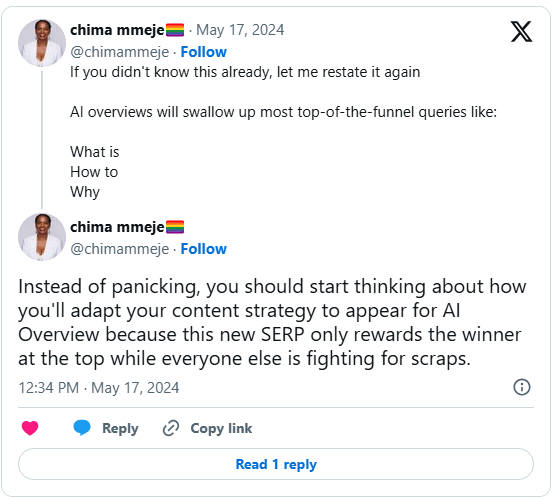
“I am very, very worried about Generative AI amplifying fears and polarizing us. In this respect I think Generative AI is even more dangerous than the search recommendation in social media engines that have been making decisions about what to show us, and what not to show us.” – De Kai, AI Professor at ICSI (UC Berkeley) & HKUST
The Five Critical Mistakes to Avoid
Understanding common pitfalls helps businesses implement AI content more effectively.

1. Over-reliance on AI without human oversight,
The most serious mistake involves over-reliance on AI without human oversight, as Google has explicitly warned that publishing unedited AI content can lead to lowered search rankings. The solution requires combining AI tools with human creativity and expertise to produce content that resonates with real people.
2. Ignoring output quality assurance
Ignoring output quality assurance creates another significant risk, particularly since studies show AI systems can produce incorrect answers up to 60% of the time. Implementing rigorous fact-checking and editorial processes for every piece of AI-generated content becomes essential for maintaining brand authority.
3. Neglect regular content refresh
Many businesses also neglect regular content updates, allowing AI-generated material to become outdated and lose rankings. Establishing a content refresh schedule and auditing and updating AI-assisted articles every 3-6 months helps maintain relevance and search performance.
4. Not aligning AI content with search intent
Not aligning AI content with search intent represents another common failure, as AI can generate text that matches keywords but misses the deeper user intent behind queries. Starting every project with a manual analysis of search intent and refining AI-generated drafts ensures that content effectively answers specific user questions.
5. Using AI for link-building spam
Finally, using AI for link-building spam through mass-produced guest posts or comments triggers Google penalties. Focusing on creating genuinely valuable content that naturally earns backlinks proves more sustainable than volume-based approaches.
The E-E-A-T Framework: Making AI Content Trustworthy

Google’s E-E-A-T (Experience, Expertise, Authoritativeness, Trustworthiness) framework plays a crucial role in determining content visibility and success.
Tom Winter, SEOwind founder, emphasizes: “The search landscape has changed more in the last 12 months than ever before, and the role of original perspectives and demonstrated expertise -especially via E-E-A-T is more important than ever. Sites relying solely on generic, AI-generated content risk losing both organic visibility and credibility.”
Experience remains the most challenging E-E-A-T factor for AI content, as machines cannot provide firsthand experience. However, you can demonstrate experience by having subject matter experts review and enhance AI drafts with personal insights, case studies from your actual work, and real client examples that showcase the practical application of concepts.
Expertise can be enhanced through AI when you provide comprehensive research, relevant data, and industry statistics as input. Include author bios highlighting relevant credentials, link to authoritative sources, and ensure content demonstrates deep understanding through structured analysis rather than surface-level coverage.
Authoritativeness develops when you properly attribute information, cite credible industry sources and link to authoritative publications. Build topic clusters around your areas of expertise, create comprehensive resource hubs, and earn mentions from other respected industry sources.
Trustworthiness emerges from consistent fact-checking, accuracy verification, and transparent disclosure when AI assists in content creation. Include clear contact information, display professional credentials prominently, and maintain a consistent brand voice that avoids generic or robotic presentation.
Check your article EEAT score
Checking your article’s E-E-A-T score helps you understand how well it demonstrates experience, expertise, authoritativeness, and trustworthiness. These factors matter because they influence how search engines evaluate your content’s quality and credibility. Running a score gives you a practical way to identify strengths and weaknesses so you can improve what really counts.
Best Practices for Strategic AI Content Implementation
Creating effective AI content for SEO requires a strategic approach that combines technological efficiency with human expertise and oversight. Tom Winter, SEOwind founder, notes: "With AI-powered search features set to expand across all major platforms, businesses can't afford to rely on outdated SEO tactics. The winners will be those who adapt quickly, blend AI-generated efficiencies with authentic insights, and double down on technical SEO to ensure their content is discoverable by both humans and algorithms."
The Human-AI Collaboration Approach
Successful AI content implementation treats artificial intelligence as a sophisticated research assistant rather than a replacement for human expertise. This collaborative approach leverages AI's ability to analyze vast amounts of data, identify search trends, and generate content ideas. At the same time, human input refines the content to ensure it aligns with the brand's voice, user intent, and factual accuracy. We call it CyborgMethod™.
Begin with thorough research and a solid data foundation before creating content. AI requires substantial context and relevant information to produce high-quality output that effectively serves user needs. Create detailed briefs that include target audience characteristics, brand voice guidelines, and specific goals for each piece of content.
Implement a structured, multi-step workflow rather than relying on single prompts. This includes a critique stage where AI evaluates draft content for strengths, weaknesses, and improvement suggestions before final human editing. This iterative process helps identify gaps and ensures comprehensive coverage of the topic.
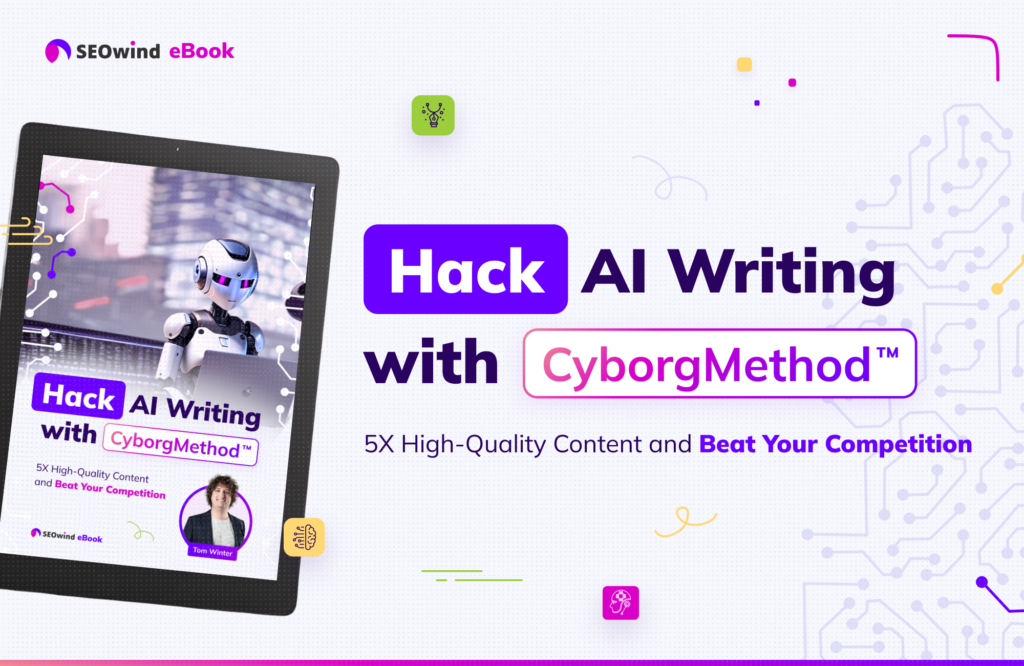
Quality Assurance and Enhancement
Maintain rigorous human oversight throughout the process. This includes fact-checking, accuracy verification, and ensuring content maintains a consistent brand voice and style. Human reviewers should assess whether content resonates emotionally with the audience and addresses cultural nuances effectively.
Focus on adding unique insights and expertise that differentiate content from generic AI output. Incorporate personal observations, original analysis, and firsthand experiences that elevate the narrative beyond basic information synthesis. These elements provide the human touch that search engines and users increasingly value.
Utilize plagiarism detection tools to verify content originality and employ semantic SEO tools to identify redundancies or paraphrasing issues. This maintains the unique value that search engines and readers expect while avoiding potential duplicate content penalties.
Adding Your Insights and Expertise
While algorithms are intelligent, they lack the personal experience or domain expertise you possess. With that in mind, make sure to:
- Provide insider observations or original analysis of the machine-generated context.
- Add your personal touch by expressing opinions or sharing first-hand experiences.
Doing so elevates the narrative by supporting broad generalizations with highly relatable insights.
How to write AI content with SEOwind so that it's good for SEO
Constructing quality AI content doesn't have to be a daunting task. With the right tools and strategy, like those provided by SEOwind, you can use the power of AI while keeping your website's visibility growing. Here's how SEOwind works.
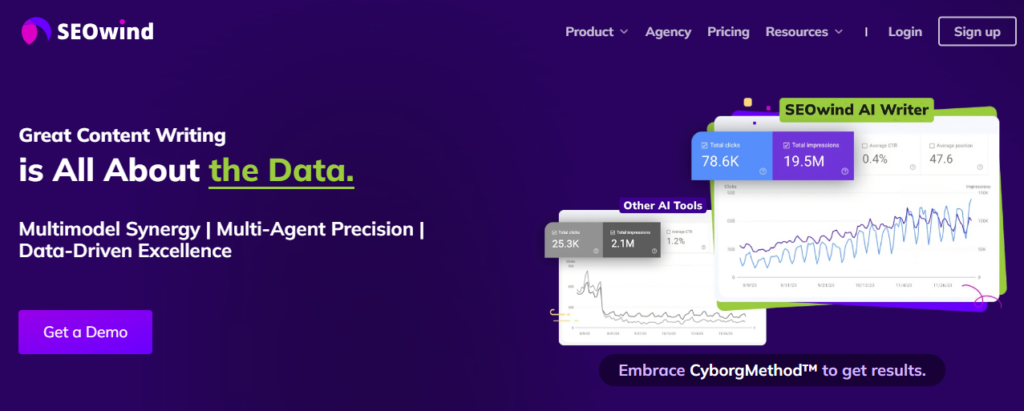
SEOwind isn’t just another AI writing tool. It’s your full-stack AI-powered content partner that combines cutting-edge AI agents with human expertise to help you scale safe.
Data-Driven Content Creation: Target What Google Wants
SEOwind starts by analyzing live SEO data and search intent signals, so every article outline and draft is built around what actually ranks. No guesswork, just laser-focused content that meets Google’s quality expectations and matches user needs.
AI Agents: Your Autonomous SEO Research and Content Assistants
SEOwind’s secret weapon is its network of specialized AI agents. Each agent tackles a critical step in content creation, from researching authoritative sources and analyzing competitors, to drafting outlines, generating content, and running automated fact checks and quality reviews. This multi-agent system delivers data-backed, accurate, and relevant drafts while freeing your team to add the all-important human touch.
Scalable Content Without Sacrificing Quality
Speed isn’t enough. SEOwind helps you scale smartly by ensuring your AI-assisted content hits all EEAT marks and avoids generic fluff. The platform’s workflow balances automation with quality controls and expert review, so your content remains authoritative and trustworthy at scale.
Human + AI Collaboration: The CyborgMethod™ Advantage
SEOwind’s core philosophy is the CyborgMethod™, treating AI as a powerful assistant, not a replacement. AI handles data crunching and draft generation while you inject brand voice, nuanced insights, and real-world experience. This combo creates unique, authentic content that connects with readers and performs well in search.
Internal Links added
A sound practice for making AI content favorable for SEO involves linking relevant internal pages within the article. It's an effective way to provide additional detailed insights and helps build website authority while improving navigation, all factors that are instrumental to Google crawling and indexing your site effectively.
Continuous Optimization with Real-Time SEO Feedback
SEOwind doesn’t stop at publishing. It gives you ongoing SEO metrics and analytics to track how your AI-assisted content performs. You can quickly spot what works, optimize underperformers, and stay ahead of Google’s algorithm changes.
Flexible Workflows for Different Content Needs
No cookie-cutter solutions here. SEOwind adapts to your goals, whether you’re creating educational guides, product pages, or localized content. Tailor workflows, briefs, and output to fit your brand’s voice and SEO priorities, making your AI content smarter and more effective.
Why SEOwind Works for SEO
- Focus on intent-driven, data-backed content that ranks
- Scale content production efficiently without losing quality
- Built-in fact-checks and quality controls to avoid penalties
- Combine AI power with human expertise for authentic, trusted content
- Continuous performance monitoring and optimization
- AI Agents and workflows built-in to fit your unique strategy and audience
SEOwind turns AI content from a risky experiment into a strategic SEO asset, giving you the efficiency of AI with the credibility and nuance only humans can provide.

Armed with these guidelines and powerful tools like SEOwind, writing SEO-friendly AI content becomes a straightforward, convenient, and insightful endeavor. Happy Writing!
Performance Metrics and User Engagement
Recent data indicate that 67% of users experienced an improvement in content quality when using AI tools effectively (Semrush).
Particularly noteworthy is A/B testing data showing that AI-generated headlines outperformed human ones in 46% of cases, suggesting higher click-through rates and user engagement when AI is used strategically for specific content elements (RD Fyn).
However, the evolving search landscape presents new challenges. With 28% of search result pages expected to feature AI Overviews by late 2025, more zero-click searches are predicted, potentially reducing direct website visits while benefiting those featured as authoritative sources.
Future Trends and Evolving Search
The integration of AI into SEO workflows continues to evolve rapidly. AI is automating repetitive tasks, such as research, data analysis, and content structuring, enabling SEO professionals to focus on higher-level strategy and creative campaigns while also adding human insights that differentiate quality content.
Brand visibility and authority are becoming increasingly important as trends like AI Overviews and zero-click searches mean content needs to be valuable enough to be cited by AI and other platforms, even when users don't click through to websites.
The ability to effectively brief AI and integrate AI tools into content processes is becoming a crucial skill for SEO professionals. Success lies in understanding how to leverage AI's strengths while maintaining the human elements that create authentic, valuable content experiences.
Making the Decision: Is AI Content Right for Your Business?
Determining whether AI-generated content aligns with your SEO strategy requires an honest assessment of several key factors. Consider your current content production capacity, available resources for human oversight, and content quality standards. AI content works best when you have subject matter experts who can guide and refine AI output rather than using it as a complete replacement for human expertise.
Evaluate your target audience's expectations and the type of content that resonates with them. Educational and informational content generally performs well with AI assistance. At the same time, personal experiences, reviews, and opinion pieces require stronger human involvement to maintain authenticity and credibility.
Assess your technical capabilities and workflow management. Successful AI content implementation requires structured processes, quality control systems, and ongoing optimization based on performance data. Without these foundational elements, AI content may create more challenges than benefits.
Finally, consider your long-term content goals and brand positioning. If building topical authority and thought leadership are priorities, AI should augment rather than replace human expertise. The most successful approaches combine AI efficiency with human insight to create content that truly serves user needs while achieving business objectives.
Google's guidelines regarding AI content
"Google has made claims to have algorithms that can detect AI-generated content." This essentially forms part of the search engine's effort to provide users with high-value results. However, the tech giant doesn't prohibit the use of AI to generate content. Instead, Google emphasizes quality control by advising against overuse without proper checks or human intervention, which risks poor user experiences compared to human-written material.
Insights on Optimizing AI Content for Search Engines
The key is understanding how Google AI-generated content differs from human-created content. While humans can foster emotional connections with authenticity, AI offers scalability and efficiency. For optimum performance, leverage the strengths of both human and artificial writers, ensuring all published materials are finely tuned to create value for your audience and comply with other standard SEO practices while avoiding pitfalls such as keyword stuffing.
Risks And Concerns Associated With Using AI Content In SEO
Using automation to optimize webpages carries certain risks that you need to be aware of before introducing a new tool into your content creation processes.
Addressing Issues Related To Duplicate Content And Penalties
Automated programs can produce loads of content at warp speed but run the fatal risk of duplicating content and attracting Google penalties. "Google relies on automation to identify AI-generated content from human-generated content." This often leads to punitive action against sites that cut corners while offering a subpar user experience.
Understanding the Implications Of Automated Content Generation
AI-driven creation isn't inherently bad for SEO. However, you need to ensure it meets Google's requirements related to originality and providing value to visitors. Remember that algorithms reward high-quality, unique, and relevant content rather than fixating on whether it's man-made or manufactured by a machine! It's not about the tool but how you use it!
FAQs on AI Content and SEO

Will Google penalize AI content?
Google does not directly penalize AI-generated content unless it falls short of the expected quality or relevance. Google's primary concern is providing high-quality, relevant results to users' queries, regardless of the content's origin. However, poorly generated AI content that lacks value, originality, or user focus can negatively impact search performance.
How do I make AI content SEO-friendly?
Creating effective AI content for SEO involves prioritizing quality over quantity, focusing on user intent and needs, ensuring content uniqueness through tools like plagiarism checkers, and adding valuable insights or analysis to AI-generated text. The key lies in striking a balance between technological efficiency and human expertise.
Is AI content harmful to websites?
AI-generated content can be implemented properly to avoid harming websites. However, poorly generated AI content that offers little value lacks originality or disregards user intent can negatively impact SEO performance. The impact depends entirely on the quality and implementation approach rather than the use of AI itself.
Does AI content get indexed by Google?
AI content achieves indexation based on quality, relevance, and technical SEO factors rather than its origin. With superior quality AI content and sound technical practices, such as proper robots.txt settings and clean sitemap files, Google bots can effectively index AI-generated materials just as they would human-created content.
The effectiveness of AI content for SEO ultimately depends on how strategically and responsibly it's created, with success requiring the combination of AI efficiency and human expertise to deliver genuine value to users.
